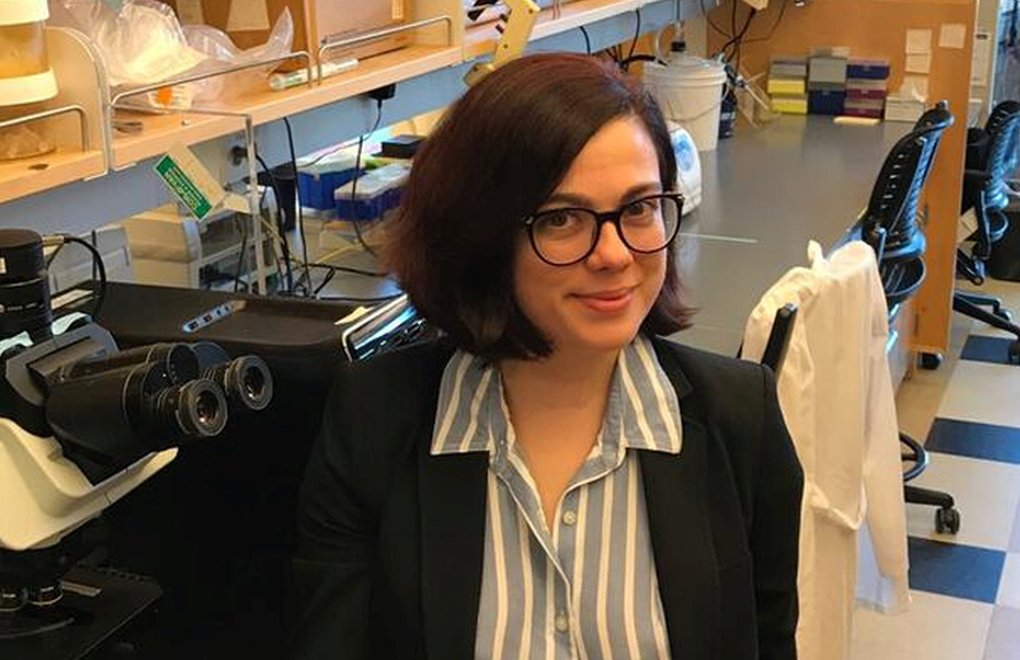Click to read the article in Turkish
Providing funding for supporting cancer research in the US for 22 years, Ovarian Cancer Research Alliance (OCRA) has awarded 2020 Ann and Sol Schreiber Mentored Investigator Award to 10 scientists. Among this year's award recipients is also Dr. Duygu Özmadenci from University of California
As reported by Musa Kesler from daily Hürriyet, with the method she has developed, the Focal Adhesion Kinase (FAK) protein, which causes tumor growth or drug resistance in ovarian cancers, can be fought with medicine.
She is granted 75,000 dollar funding
As announced on the official website of the OCRA, the Ann and Sol Schreiber Mentored Investigator Award provides funding for post-doctoral or clinical fellows working under the supervision of a mentor who is a recognized leader in the field of ovarian cancer research.
Accordingly, the award of the OCRA provides a total of 75,000 US dollars to be used over one or two years and aims to "encourage the recipient's research career in the field of ovarian cancer."
About the research of Duygu ÖzmadenciGranted 75,000 US dollars as one of the recipients of the award, Dr. Duygu Özmadenci has summarized her research project in following words: "Recent advances in immunotherapy hold the promise to one day permit a cure for ovarian cancer. Nonetheless, in clinical trials, ovarian cancer has so far been nonresponsive to immunotherapy approaches, suggesting that the relatively 'direct' approach of using a single immune checkpoint blocker is insufficient in ovarian cancer. "My studies have focused on a gene that is gained in more than 70 percent of women with high grade serous ovarian cancer. The gene codes for the focal adhesion kinase (FAK) protein, and most studies to date have focused on its ability to help tumor growth or drug resistance. Using a new preclinical model I co-developed, which mimics the human disease in many aspects of gene gain, loss and overall aggression, I found that FAK expression in the tumors shapes their interaction with the local microenvironment. "Importantly, the presence of FAK led to signaling that caused factors to be secreted which are known to suppress the immune system. When I knocked out the gene encoding FAK, mutated it, or used newly developed drugs that target it, we found that the levels of these immune suppressing factors dropped dramatically, tumors were much smaller, and I could detect active immune cells. "In the studies proposed here, I am seeking to better characterize the factors which FAK elevates to block the immune system, and to compare my results to other preclinical models, which I will treat with the FAK inhibitor. I believe these studies will allow me to identify a panel of key factors that block the immune response, many of which may be targetable alone or in conjunction with drugs that target FAK." |
About Duygu ÖzmadenciDr. Duygu Ozmadenci is a postdoctoral research fellow at the University of California, San Diego Moores Cancer Center. Born in a small town on the Black Sea region of Turkey, Duygu attended the prestigious Lyceum Galatasaray and Istanbul University before moving to France for graduate school. Receiving her Master's degree from Université Réne Déscartes (Université Paris V) with high honors, she then moved to Université de Lyon and the Cancer Research Center of Lyon for her graduate studies on the regulation of cell plasticity and pluripotency. She received two consecutive national (ARC) fellowships during her doctoral studies, identifying novel signaling pathways involved in stem cell potency regulation and maintenance. During her doctoral studies, she presented her findings at international meetings in Beijing and Paris. She was awarded her PhD degree at the end of 2017 and next moved to the University of San Diego, California for postdoctoral studies. Working in the UCSD Moores Cancer Center, her current research focuses on focal adhesion kinase (FAK) signaling. The gene encoding FAK is found to be amplified in ~70% of women with serous ovarian cancer, regulates the WNT/b-catenin pathway, promotes stemness and chemotherapy resistance. Working together with other members of the division of gynecologic oncology, and with the assistance of a corporate partner (Verastem), Duygu has identified new roles for FAK in the modulation of the ovarian tumor microenvironment. Her goals are to understand how FAK promotes ovarian tumor escape from immune attack, and to establish new combinatory therapies including FAK inhibitors as immunomodulatory agents. * Source: OCRA official website |
(EMK/SD)




